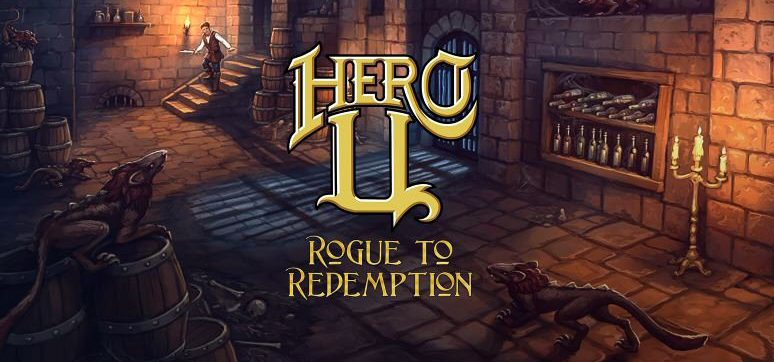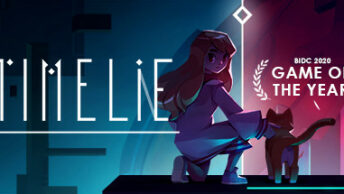Rogues are not all bad and selfish. It even takes a special education to become one. Hero University has just the class for it.
Type: Single-player
Genre: RPG, Adventure,
Point and Click
Developer: Transolar Games
Publisher: Transolar Games
Release date: 10 Jul, 2018


Intro
‘Hero-U: Rogue to Redemption’ is a point-and-click adventure game with RPG elements. It was made by the creators of ‘Quest for Glory’ series. Now, I need to confess that I’ve never played any of the ‘Quest for Glory’ games, so I can’t comment on how this one compares to them, but we’ll take a look at how this game stands as a point-and-click title and the general fun it provides.
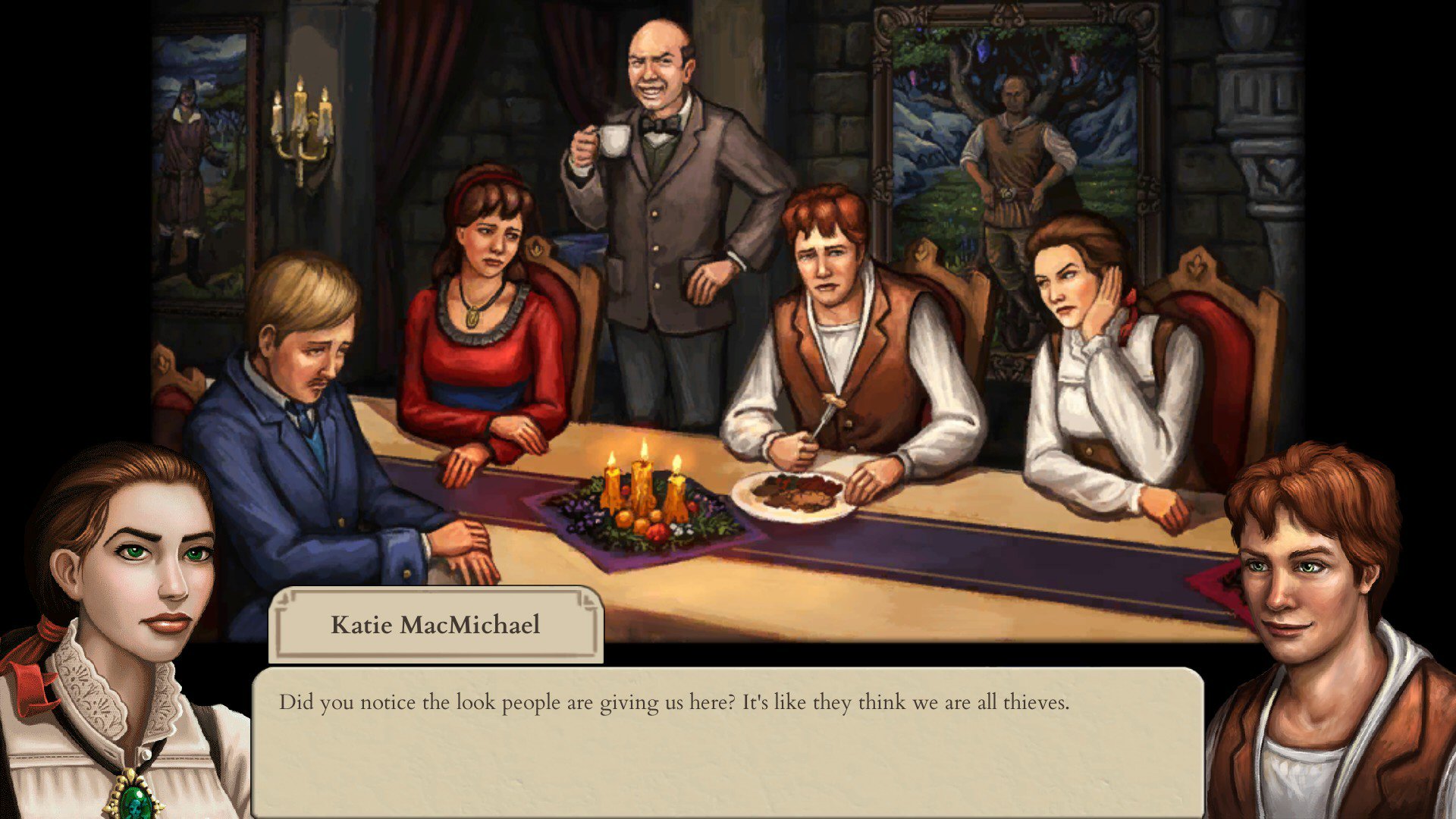
Story, Setting, and Characters
We play as Shawn O’Conner, a young lad who is trying to get into a Thieves’ Guild when he gets caught and sent to a Hero University by a mysterious stranger. The Hero University is an interesting place where young people train to become heroes. They are assigned to classes and subjects depending on what they have an affinity to. Shawn gets assigned to the Rogue class, or as it’s codenamed – the Disbarred Bards class. We then go to class almost every day and get lessons, and after class, we can do a variety of things – we can build relations with our classmates and get to know them better, we can practice and improve our skills, we can go into dungeon areas to fight monsters and find loot, or we can do various quests that pop up.
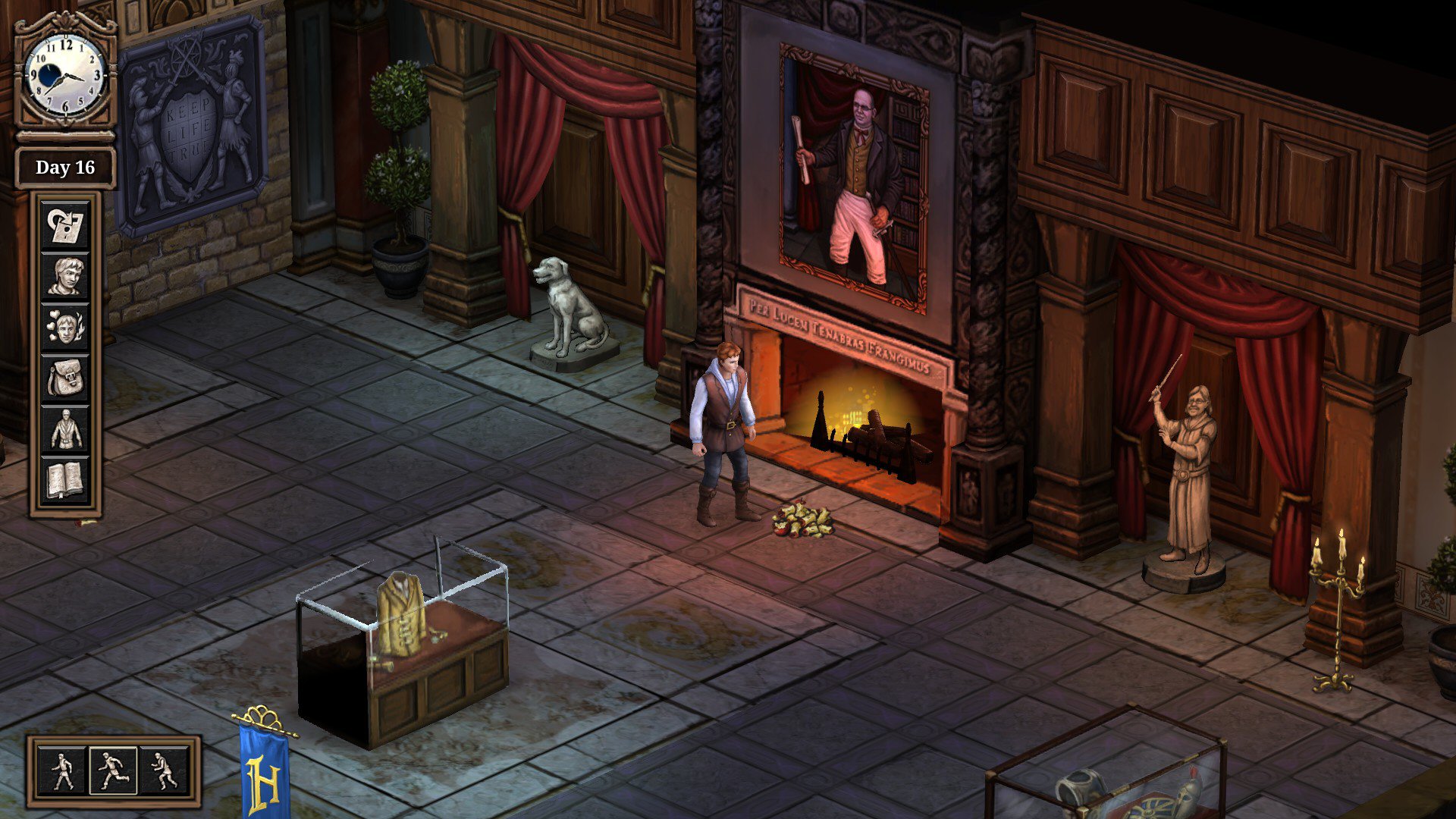
This is a really well-executed premise. At first the idea didn’t appeal to me too much and the first hour or so of the game I felt detached from the plot and main character. The main character can be hard to relate to as he’s not exactly a morally principled individual. However, after the first hour, as I began to explore the Hero University and make connections with other characters, the plot sucked me in. The world-building is quite superb in the game and it’s almost never force-fed into us. Information about the world and backstories comes up naturally. A lot of it we even find out and uncover by doing some exploration of our own.
Most characters in the game are developed really well and feel like real people with clear motivations. They all have backstories that have influenced who they are in the present day and they all respond differently to how we talk to them.
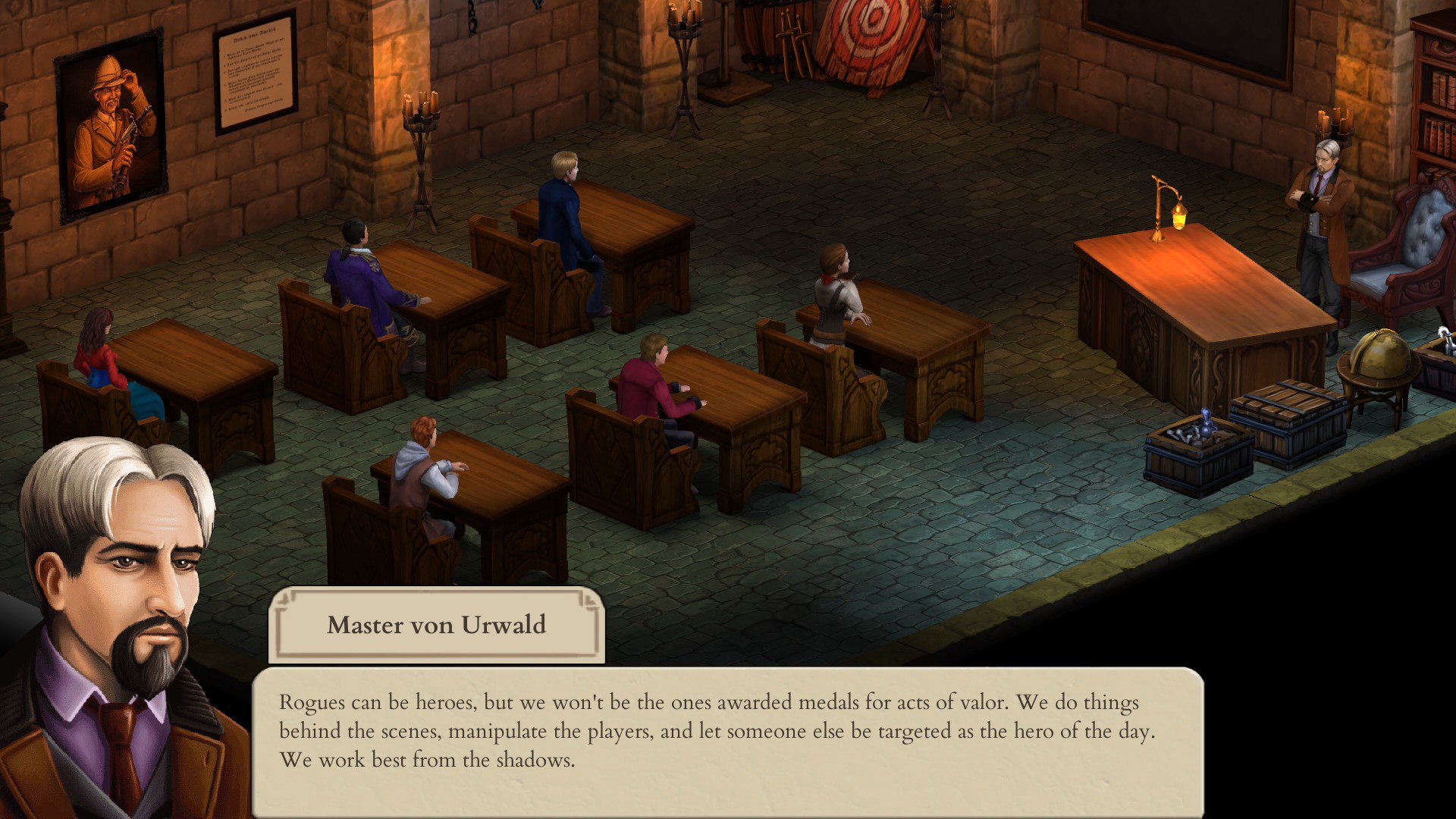
RPG Elements and Gameplay
Our character has many skills and stats that grow over time as we do different activities. We can also improve on many of them in the practice area (such as dagger throwing, fitness training, rope climbing, etc). Some of the stats determine our combat proficiency – the damage we do, our health, the chance to dodge enemy attacks, and so on. Other stats are used mainly for skill checks during various interactions. For example, when picking locks, our tool use stat comes into play. If it’s high enough, then we succeed to pick the lock.
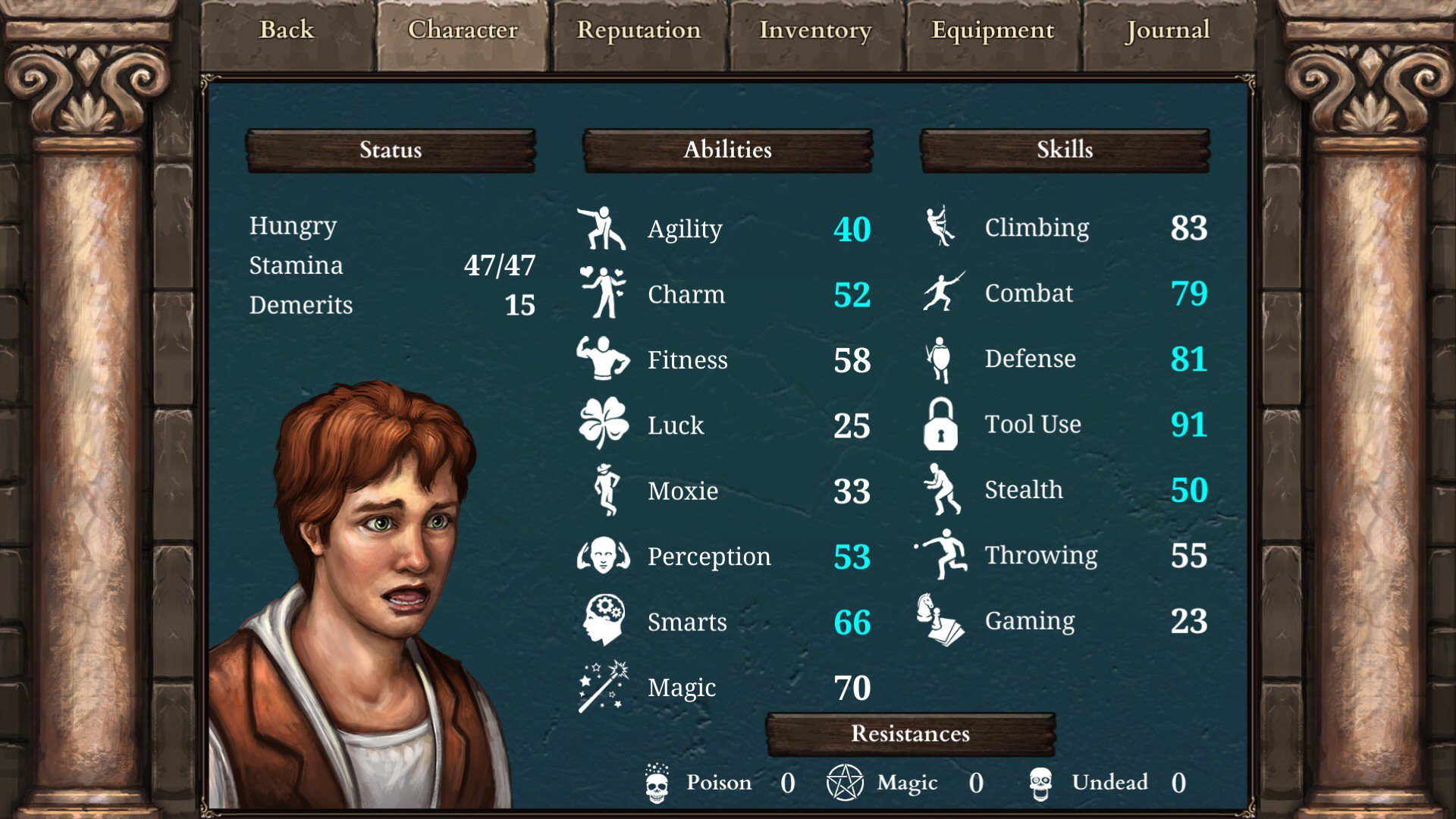
Another RPG element is relationship building. When we talk to other characters or help them, we can improve our rapport with them. This can open up romance options and other benefits, such as them giving us discounts on things or giving us better rewards. Although I believe a couple of characters in the game will always dislike you and it’s not possible to be on good terms with them, though I could be wrong.
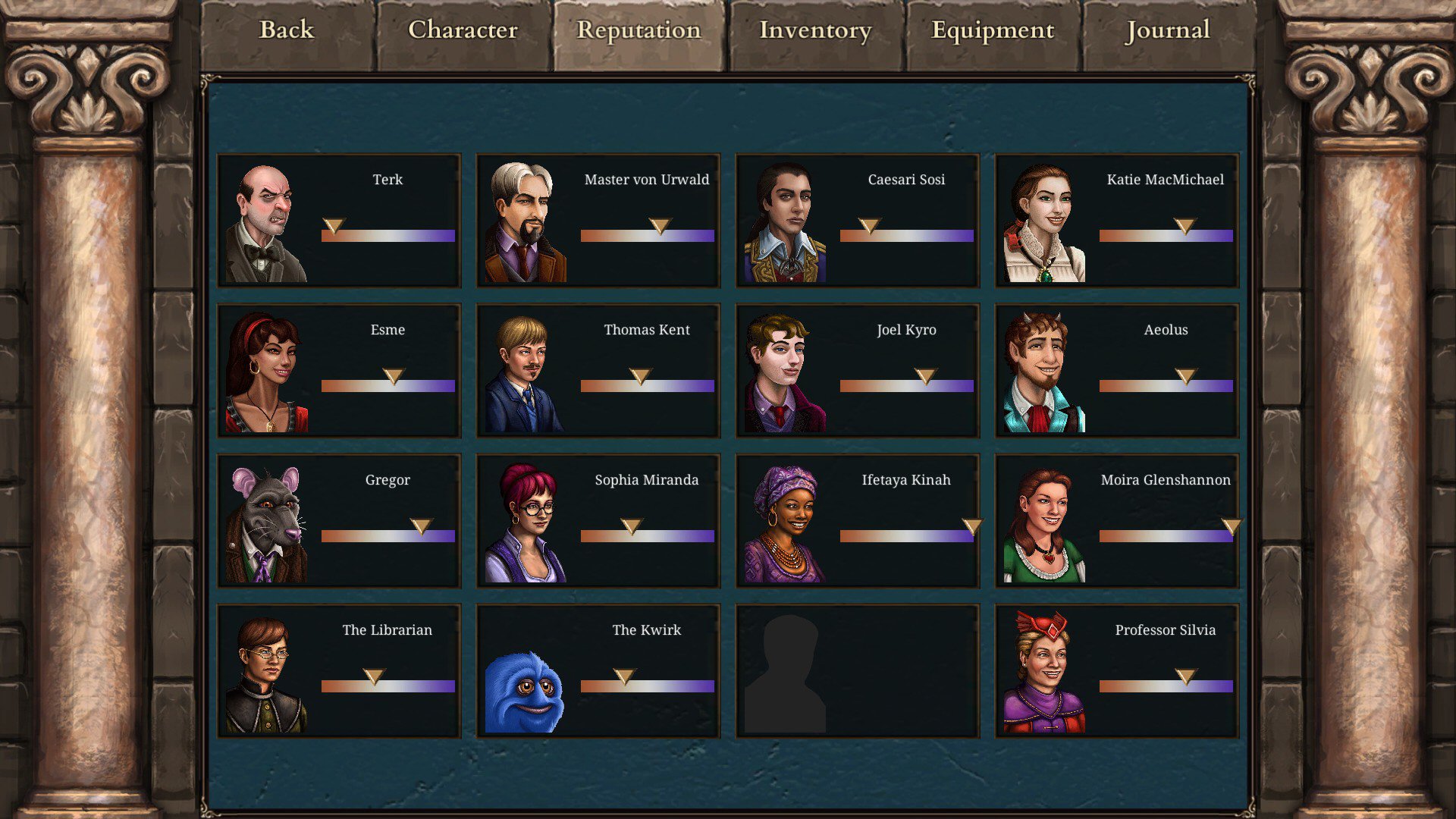
Most of the gameplay is a point-and-click though and many parts of the environment can be interacted with. For each part or object that can be interacted with, there are multiple options. Some of those only cause Shawn to make some witty remark, while others could be useful. We have an inventory of items too, though we don’t need to drag an item onto an object in an environment for special interactions involving items. If a special interaction is available, its option will appear on the list when we interact with the object.
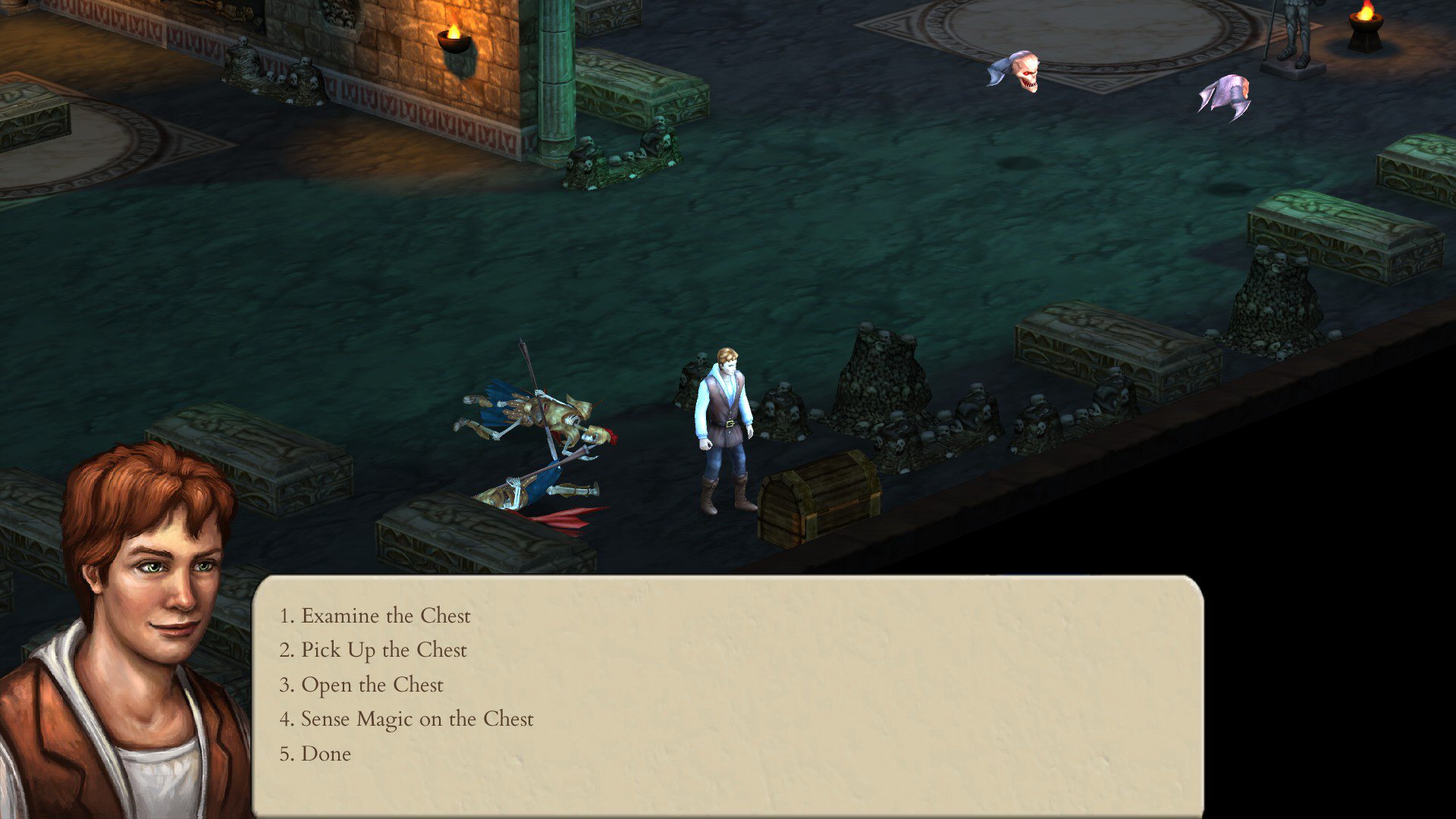
Another big aspect of the gameplay is time-management. No, we’re not pressed for time in a real-time manner. Rather all our actions and conversations cause bits of time to elapse. Talk to someone, 10 or 15 minutes could go by. Practice your combat skills on a dummy, and 1 hour is gone, and so on. We see the current time of the day on the UI. So, why is the time important? That’s because we’re at a university and so certain things happen at a certain time. Class in the morning, free time in the afternoon, dinner time at 5, then free time again at 7, and then curfew time at 10 where students must be in their dorms and could get penalised if they’re seen wandering the halls (though doesn’t mean you can’t; just don’t get caught).
I wasn’t keen on this idea of time-management at first. It seemed like it can be easy to miss things. However, I grew to really enjoy it, and once you learn the ropes, it becomes quite easy to manage your time so that you can get everything that you want done in a day. Most of the game happens within the confines of the university grounds, and so you eventually get to know the whole area like the back of your hand and can plan your activities in a certain order to make sure you get it all done when you need.
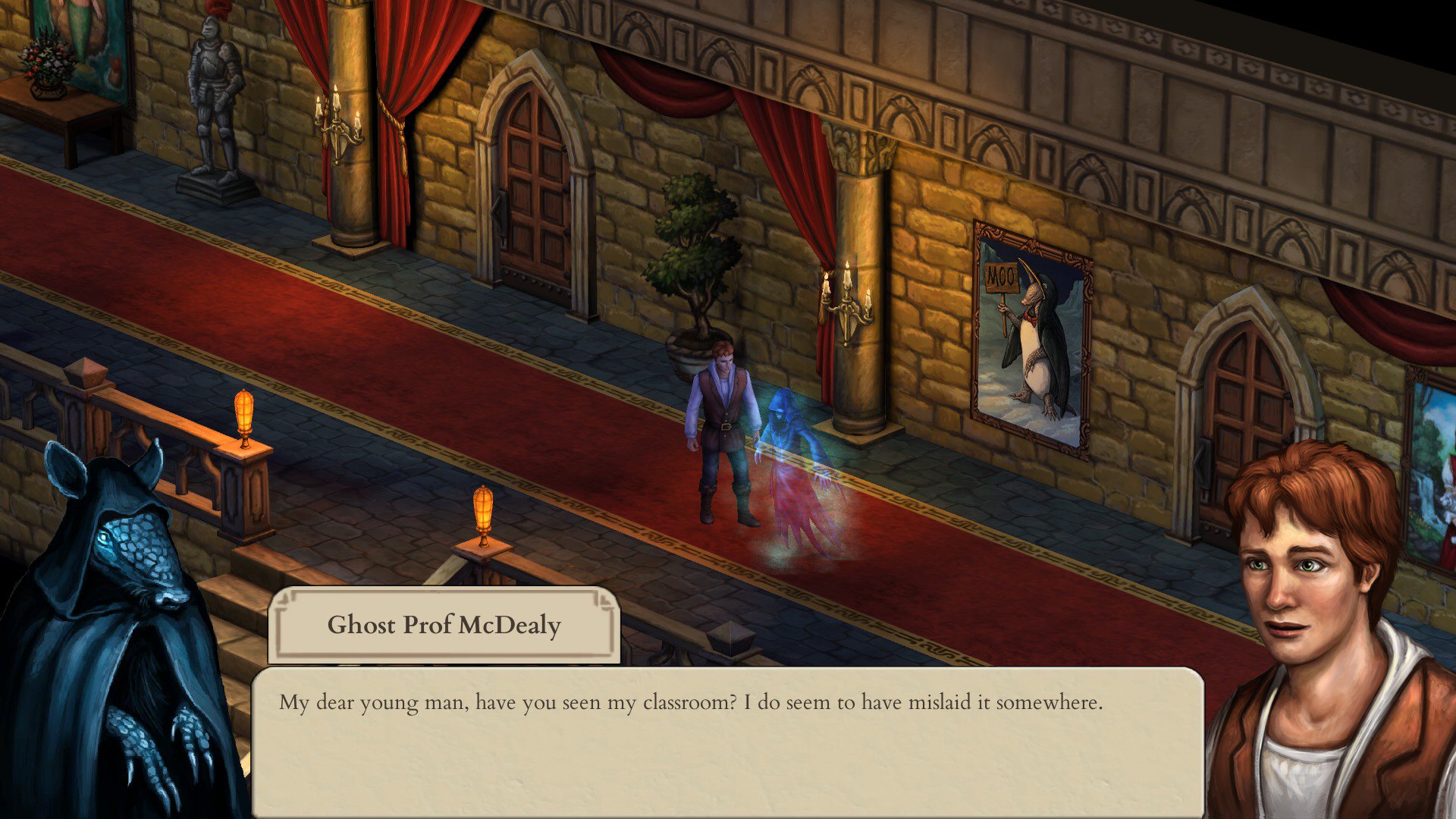
The game spans about 50 in-game days, and story-related events occur on specific days. Oftentimes this gives us quests to accomplish. Some of those quests can only be accomplished on certain days, while others are time-sensitive and become unavailable if we’ve not done them after some number of days. If we don’t do a quest, then a different outcome occurs, all of which have some impact on the story. One critique perhaps that can be given is that it’s not clear which tasks and quests operate in which manner and you might need to consult a walkthrough just to be sure if it’s time-sensitive or can only be done later. Of course, we can always do some of our own exploration, to take some risks, and to save often. That is part of the fun and makes life in Hero University quite intriguing, because you don’t always know what to expect.
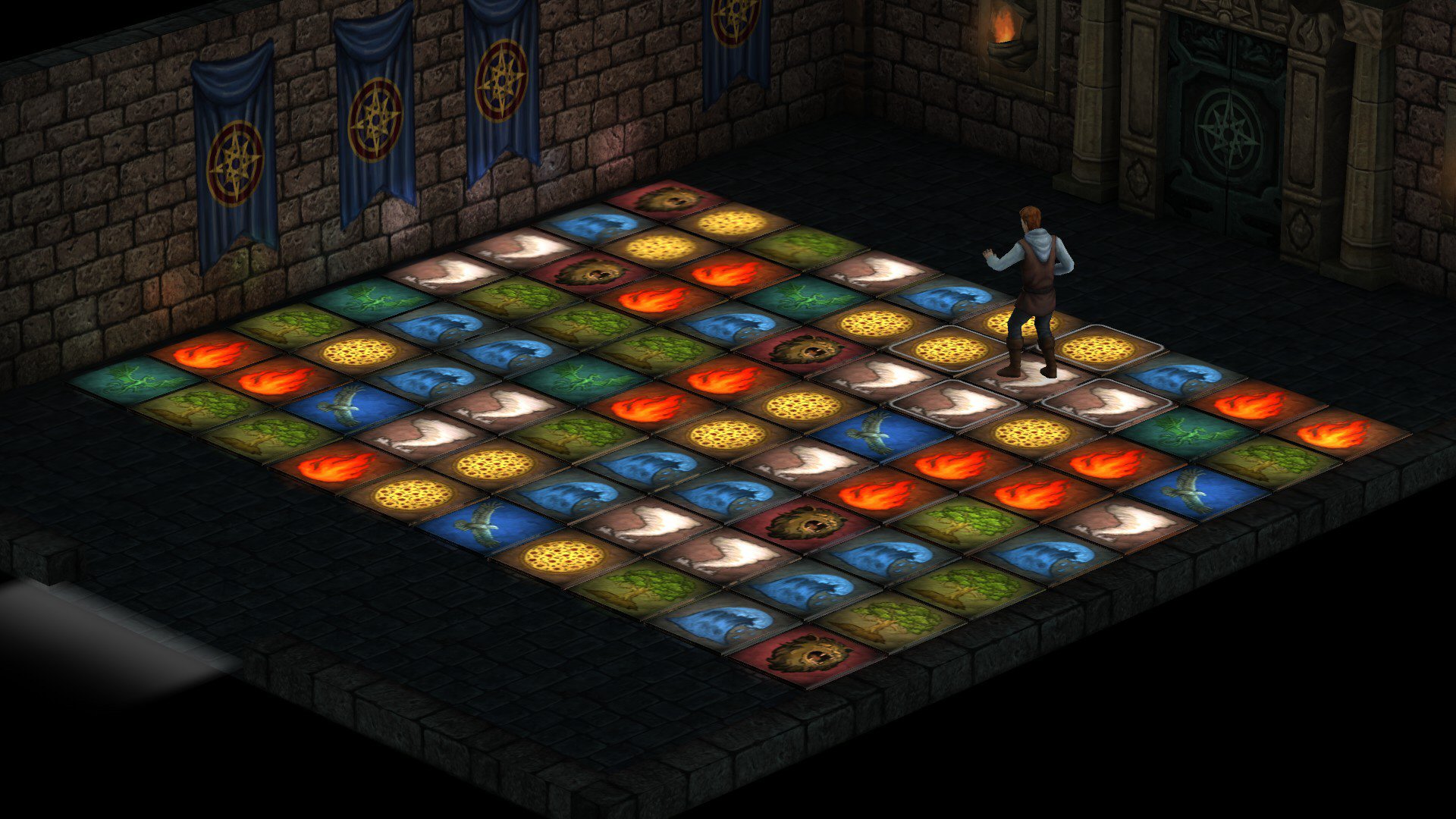
The game does require us to explore the places in order to find hidden new locations and questlines, often throwing hints our way. There are occasional puzzles and mini-games present too. Some are in dungeons, while others are during other activities. For example, partway into the game we learn that some locks can be trapped, so we need to be able to disarm these traps via a special mini-game. Another mini-game that we come across a few times on specific in-game days is a card game called Poobah that students play with each other, which is a lot like poker. No knowledge of real cards is required for this. We only need to learn what the different terms in the game mean so that we know what beats what. This mini-game is optional, but it’s one of the ways our character can acquire some money and build rep with his classmates.
In addition to our main Rog… I mean Disbarred Bards class, we can also take up some additional classes in the afternoon, which grant us additional skills for use in the game (for example: First Aid class allows us to learn about types of mushrooms so that we are able to pick the good ones when exploring the dungeons). The three additional classes are First Aid, Science, and Magic. We can only choose one for the first half of the semester and another for the second half (or continue to the advanced version of the one we took). This creates some decent replay value as this changes some of the things we’re able to do in the game, meaning there’s some juicy new stuff to see if we pick another elective class on the next playthrough.
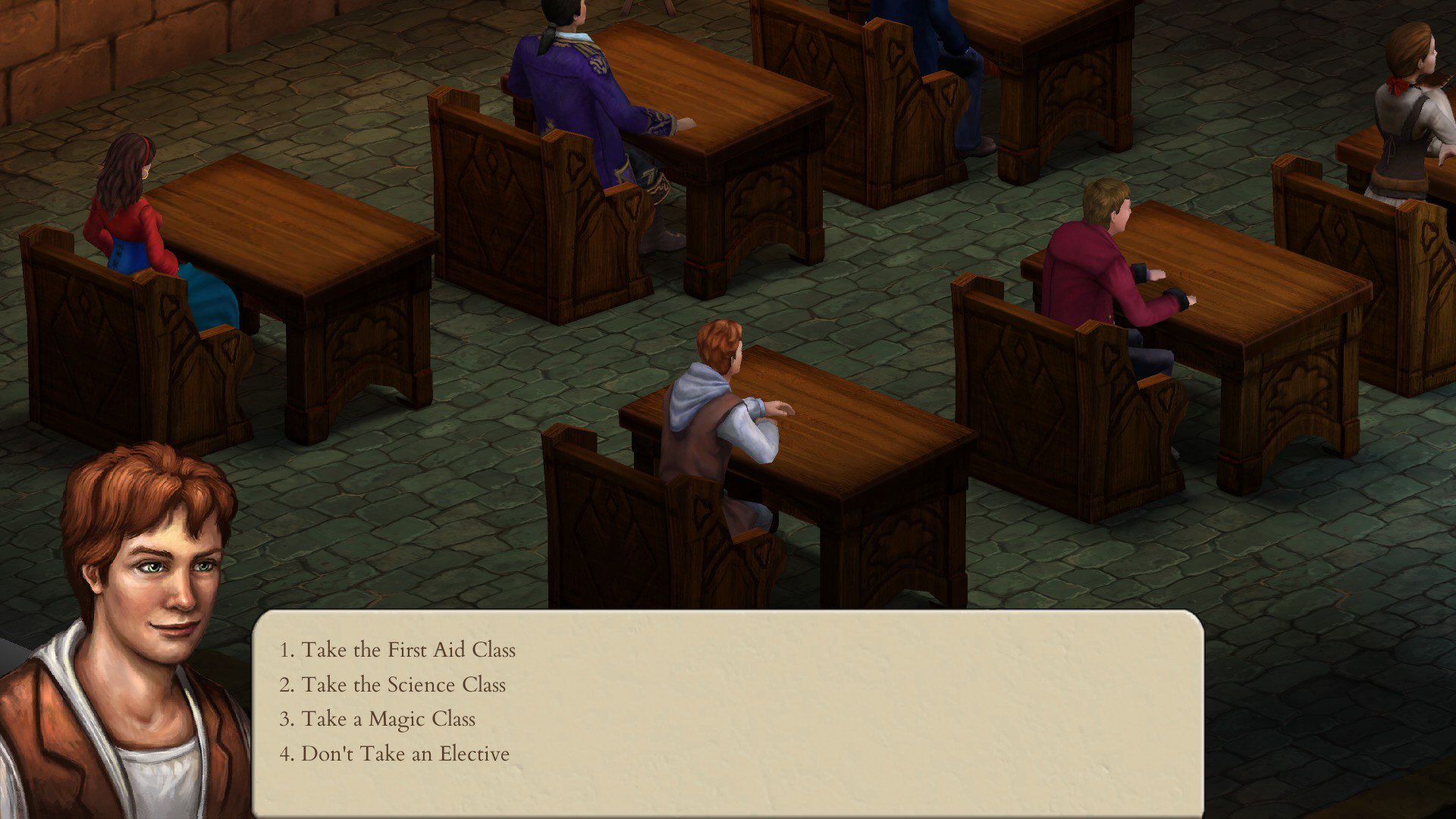
With all our classes we get to also do some tests. What did you think? This is a university. The tests check us on the stuff that was taught in the classes. This is all approached in a somewhat humourous and fun manner, so they’re always fun to do.
The game has plenty moments where we make choices, so expect some degree of different outcomes in the story events. Not all of the times the choices are presented right in our face. Rather our actions or inactions are the ones that lead to specific consequences.
Combat
When we engage in combat, it takes on the form of turn-based skirmishes with the enemies in the close proximity to us. This all happens on the map, and oftentimes we need to be careful not to aggro too many enemies at once. In the early stages of the game especially, before we fully master combat, it’s a good idea to aggro one enemy at a time, as fighting two at once can already get overwhelming. Later on, as we acquire better combat stats and have many useful combat items, we can take on several enemies at once.
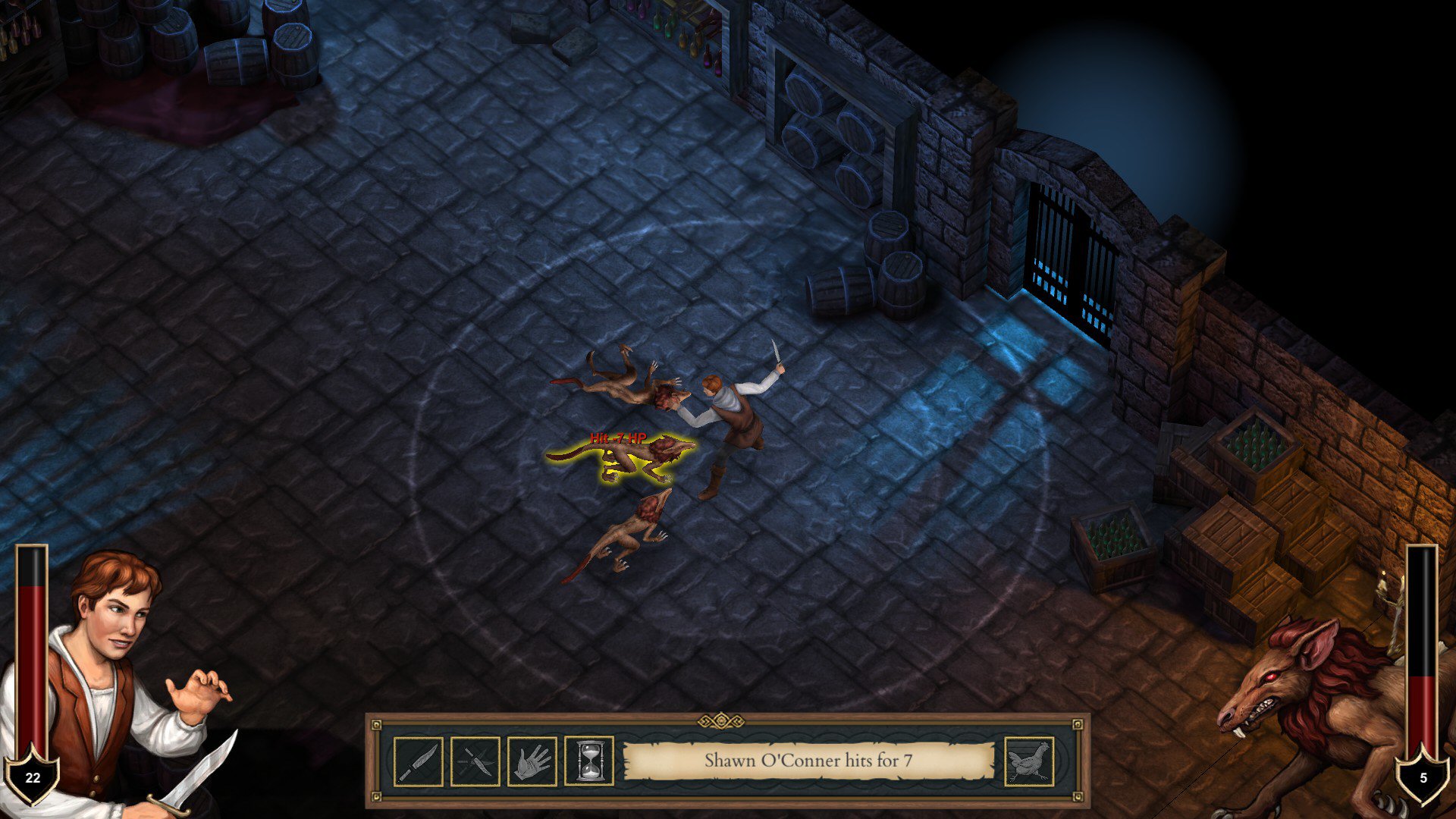
Most of the combat can be avoided, as it triggers usually if enemies become aware of our presence. Sneaking past them is a viable option too. At times this could require patience if the area is filled with enemies. There’s also an option to flee from combat. Losing all health points does not cause a game over, and rather we get patched up in a medical centre before being back in the university halls. This does waste a lot of our in-game time, however, so although losing in fights is not the end of the world, it’s not always a good idea.
The combat only usually occurs in dungeon areas (with the exception of some story-related events). Only one dungeon area is available at the start, but we can discover other ones over the course of the game. Many of the game’s quests require us to venture head first into danger in these dungeon areas, so you won’t be able to stay out of trouble if you want to accomplish a lot during your Hero-U semester.
Presentation
The game plays from an isometric perspective as we go around from one area to another. It’s easy to navigate the areas as you can see everything around you and simply move by clicking where you want to go with a mouse. In combat the angle changes to more of a top-down view.
There’s a lot of great art in the game, ranging from character portraits during dialogues to still images that happen during specific scenes. Everything is very colourful and memorable.
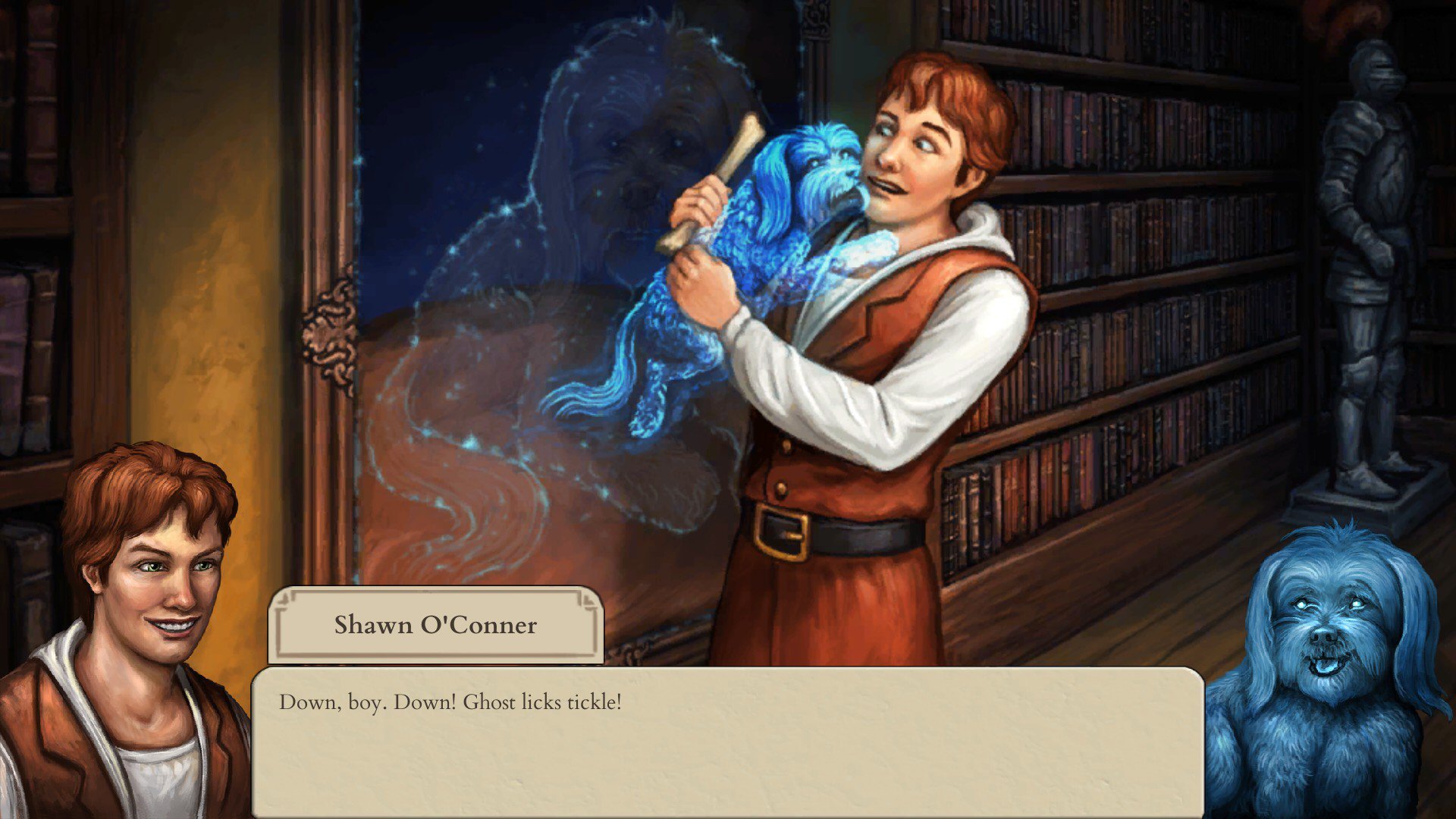
Music is also decent. It might not be winning any soundtrack awards, but it sets the mood in each scene well and manages to stay pleasant even despite you hearing some of it so frequently during the game.
There’s no voice acting in the game. To me personally this wasn’t a big issue, as there are many different dialogues to be had throughout the game, and I imagine to voice act all of it would cost a fortune. It’s better to have a game rich with a variety of dialogue that is dependent on choices than to have fewer lines that are voice acted.
Verdict
This was a thoroughly enjoyable game that kept me immersed for the duration of the story. Despite some small flaws here and there, it’s a fine point-and-click game. It’s a perfect example of a game that is much more than the sum of its parts. All the ideas and game mechanics come together nicely and enhance the overall experience – a beautiful marriage of the RPG mechanics and point-and-click adventure gameplay. More than just a linear story, it makes you live the life of the main character during the university semester and make friendships that you’re going to miss when the game ends.
My playthrough took me about 26 hours, so the game has a lot of content. It might seem kind of routine how each in-game day you have more or less the same schedule. However, the game frequently throws in unusual events and surprises, whether it’s merely some classroom drama or something much more life-threatening, and this keeps up the intrigue.
Since it’s got a really well-crafted narrative on all fronts, a lot of fun gameplay mechanics, and a decent presentation, I’m going to give it an Autosave score.

